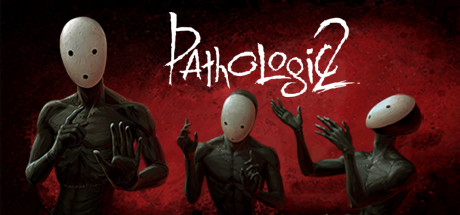We all know the feeling: you’ve already lost an argument and then, two days later, the perfect comeback pops into your head. Or you’re late for an important meeting because of traffic and think, “If only I’d taken the subway instead of a taxi!” And that’s to say nothing of more serious losses, which make you wish even harder that you could go back in time and set things right.
[previewyoutube=HIbnfoY_1Pg;full][/previewyoutube]
Pathologic 3 is a game that grants exactly that wish.
Today we’ll show you how to fix what normally can’t be fixed.
https://store.steampowered.com/app/3199650/
The Cost of Mistakes
You step into an unfamiliar town for the first time. You meet its residents, explore its districts, learn their customs. You encounter death. You find allies and make enemies. You commit irreversible errors. You face the consequences of your choices.
You bear responsibility. You live with it.
This is all a fascinating process, because failure in a video game isn’t as frightening as in real life. Yet even in games, people are sometimes so afraid of making mistakes that they reload saves, read walkthroughs, watch YouTube essays or quit entirely before reaching the end.
In Pathologic 3 we decided to flip that concept and look at mistakes from the other side. What if any mistake could be undone — like in the fantasies above? Walked into a dead end — turn back, and take another path?

What would we learn about the price of decisions and errors then?
12 Days Until the End
A renowned doctor from the capital arrives in a steppe town in search of immortality. Instead of an immortal man, he finds a corpse. Instead of eternal life, an epidemic of a monstrous disease. The town descends into chaos and dies in twelve days. The end.
Pathologic 3 begins in the middle of that story. You’ve already made every possible mistake, taken every wrong turn. The plague tears the town apart, key figures are dead or have turned against you, and catastrophe is just around the corner. There is no hope.
…And at that moment you gain the power to rewind time and attempt to save the town — by making different choices.

Like in previous games, you will study the town and try to save its inhabitants from what seems inevitable: examine patients, issue harsh decrees to fight the epidemic, visit plague-ridden districts. And if time corners you, you will rewind and try again.
Unlike previous entries in the series, now you must fight for every new day of the town’s life, because the story keeps trying to end prematurely. You need to find a vaccine as early as possible; your diagnostic skills and medical knowledge will be crucial.
Be Ready to Answer for Your Actions
The narrative frame is: Dankovsky is interrogated about what happened to the town. He’s blamed for everything but what exactly happened isn’t always clear.
Battling a plague is no child’s play. No one trusted you. People barely learned to wash their hands, yet you had to invade their private lives: impose forced quarantines, curfews, burn down entire districts, punish those who broke the decrees.
Dankovsky will be accused of failures, cornered: he’ll have to change his testimony to defend himself. Confronting unexpected consequences, he must choose other paths until he assembles a version of the world that suits his will. Because, as we know, any choice is right so long as it’s willed.

We aimed for as few obviously good or bad decisions as possible. Many stakes are hidden: sometimes you only know that “the price will be something important,” but what exactly (and whether it’s worth it) will be revealed later. In a game with linear time that would feel cruel; the ability to rewind lets you explore the unknown boldly and err without fearing permanent ruin.
Study the possibilities. Build theories and test them. Own the consequences.
Minutes of Life Are Worth Their Weight in Gold
Within the game world you need something called Amalgam to travel to another point in the story. It can be:
• obtained by completing quests;
• “taken” from those beyond saving (euthanasia);
• harvested by breaking mirrors every reflection doubles life, and therefore time.
(What Amalgam is and where it comes from will be explained in-game by the Kain family – if they feel like it.)
Spend Amalgam and leap into the past: for example, jump from Day 5 back to Day 3, save a doomed character — and return to Day 5 in an altered reality.
If the result displeases you, the updated Mind Map comes into play, letting you manipulate memory: erase an entire branch of events and try a different combination. In other words, if one decision bothers you, you can go back and change only that, leaving the rest of the day untouched — provided the events aren’t logically linked.

These jumps in narrative and time aren’t an optional gimmick — they’re the essence of the game. Certain endings, locations, and crucial story answers unlock only after you arrange specific combinations of events. It’s the path from hostage of circumstance to a person trying to build the perfect puzzle of occurrences. Assemble the world into a single riddle — and become something greater.
Everything Can Change
We continue gathering feedback and polishing the Amalgam mechanic, the balance of jumps, and quest overlaps.
Some details above may change by release, but the desire to explore mistakes and rewrite fate will remain at the heart of Pathologic 3.

It’s the perfect TIME to add Pathologic 3 to your wishlists.
https://store.steampowered.com/app/3199650/
Timing the stage,
Ice-Pick Lodge
